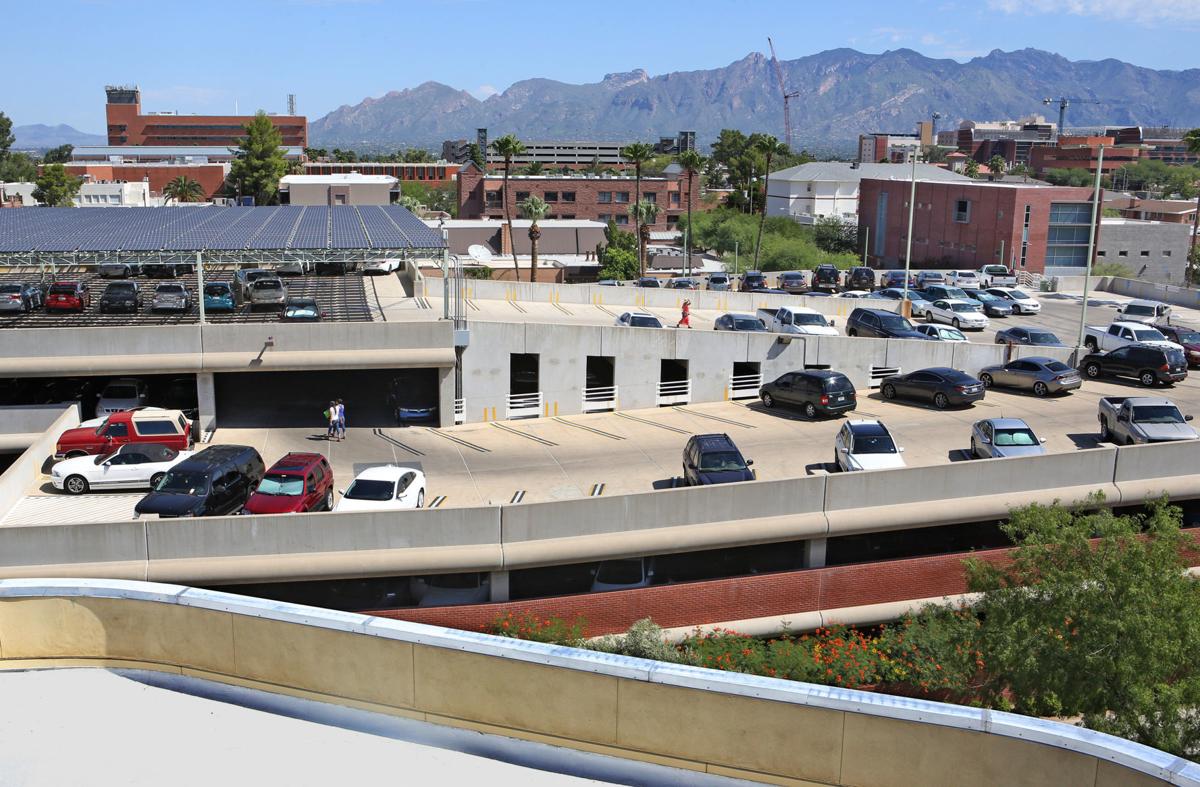Motor vehicle theft reports to University of Arizona police and drug law arrests were up in 2018, while rape and burglary reports were down, according to the 2019 Campus Safety, Security and Fire Report.
The annual report summarizes crimes on campus and other UA-controlled property for the three previous years. The Clery Act of 1990 required colleges to release crime data.
Motor vehicle theft cases more than doubled from 2017, with 33 reports in 2018. The largest increase of vehicle theft was on campus, with nine more cases reported to UAPD in 2018 than in 2017.
There is no rhyme or reason for the increase in thefts, said Sgt. Sean Shields, the department crime prevention officer and public information officer. Drivers should do their best to prevent theft by making sure their doors are locked, parking in well-lit areas, he said.
People are also reading…
Reported rapes decreased from 22 in 2017 to 14 in 2018. Eleven occurred on campus, one more than what was reported in 2017.
The three off-campus rape reports were significant decrease from the 11 off-campus rape cases reported the previous two years. The department also received a report of statutory rape last year.
Shields said many of the rape cases come from third-party reports. Certain campus security authorities are required to report to UAPD if they know of a rape, but they sometimes don’t have information about the suspect or details of the case. The report is still added to crime statistics, but officers don’t always move forward with those cases.
“Most of the survivors, they don’t want to prosecute because in a lot of these cases the victim knows who the suspect is,” he said.
About six months ago, UAPD created a new unit that focuses on sex crimes, Shields said. Through the Special Investigations Unit, sexual crime survivors work with one detective throughout the investigation.
Burglary reports decreased from 64 in 2017 to 41 last year, with 16 less cases of on-campus burglary in 2018 than in 2017.
Liquor-law arrests continued on a downward trend, from 155 in 2017 to 130 in 2018. That number was 168 in 2016.
There was an increase in liquor-law disciplinary action from 472 cases in 2017 to 624 last year. In 2016, there were 763 cases of disciplinary action for liquor law violations.
With alcohol violations, the department leaves it up to officers’ discretion whether to divert a student to the Dean of Students or to arrest them.
“We’re not trying to ruin the students’ lives by arresting them for an MIP and possibly preventing them from getting into the school that they want of a job that they want later in the future,” Shields said. “We understand that mistakes do happen.”
There was an opposite trend in drug-law arrests and disciplinary action. Drug-law arrests increased from 108 in 2017 to 170 last year, after a slight decrease from 119 in 2016. Drug-law disciplinary action decreased from 102 to 64 last year.
Most drug-related crimes on campus deal with marijuana-based drugs, Shields said, but officers are less likely to divert students in felony drug cases. He said officers have seen an increase in marijuana wax cases, which are a felony drug case.















